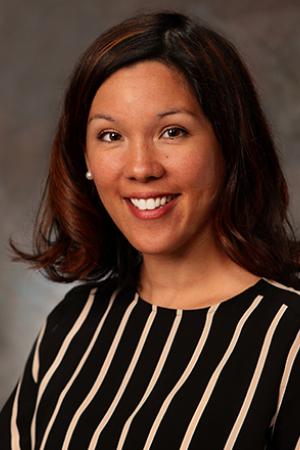
Picture this: You’re at home, enjoying your favorite leisure-time activity without a care in the world. Without warning, your arm goes numb and your drink slips out of your hand. You try to stand, but dizziness drops you back to the sofa. You try to speak, but the words don’t flow like they normally do.
In the confusion, you wonder, “Should I take a nap and hope I feel better in an hour?” Or, you worry, “I don’t want to call 911 if it’s not an emergency.”
Waiting and not calling 911 when you’re having a stroke could lead to permanent brain damage. Or worse, it could be a fatal decision. According to Amanda Nies, DO, Holland Hospital Neurology, knowing the signs of stroke and following doctor-recommended stroke protocols will make calling 911 a no-brainer.
Time is Brain
When it comes to stroke, every second counts. Yet over the past year, fewer patients have visited the Emergency Room with stroke symptoms due to concerns over COVID-19 infection.
Nies underscores the importance of calling 911 and getting to the Emergency Room as soon as possible.
“There are those out there who have this fear, and it’s a big concern because there are interventions for stroke that can be lifesaving or life-changing if performed soon after symptom onset,” she said. “So do not wait to see if your symptoms get better or go to sleep and hope they go away. Delaying care leaves medical professionals with fewer options for treatment.”
Holland Hospital continues to take the utmost precautions to keep patients safe and prevent the spread of COVID-19. The likelihood of suffering consequences from having a stroke and not seeking medical care is much greater, especially as more people are getting vaccinated.
Stroke: Know the Signs
Stroke happens every 40 seconds in the US, but according to the American Stroke Association, 33% of us don’t know the symptoms. To help you to identify the signs, remember this simple acronym: BEFAST. The quicker you act, the better your chances of recovery:
B = Balance: Sudden loss of balance or coordination
E = Eyes: Sudden trouble seeing out of one or both eyes
F = Face: Sudden drooping of one side of the face
A = Arms: Sudden weakness or numbness in one arm
S = Speech: Sudden trouble speaking or confusion
T = Time: Call 911 immediately if you notice any of these signs (Stroke care starts in our ER, where sophisticated diagnostic tools assist in fast, accurate detection.)
“The signs of stroke can vary,” Nies said. “But in general, it’s an acute change that occurs suddenly. It can range from a change in mental status to bad a headache to loss of feeling on one side of the body.”
Prevention is Powerful
The upside is 80% of strokes are preventable. Your lifestyle can make a profound difference in preventing a stroke from striking you. Holland Hospital offers support for key lifestyle modifications such as:
- Smoking/tobacco use: Complete cessation is optimal
- Alcohol consumption: Men: two or fewer drinks/day; women: one or fewer drinks/day
- Physical activity: At least 30 minutes of moderate-intensity physical activity at least three times per week
- Diet: Low fat, low sodium; lots of fruits and vegetables
- Lose weight, if necessary: Losing as little as five to 10 pounds can have a significant impact on your risk
